How the Horwells are cracking the fresh nut-growing business in Blenheim
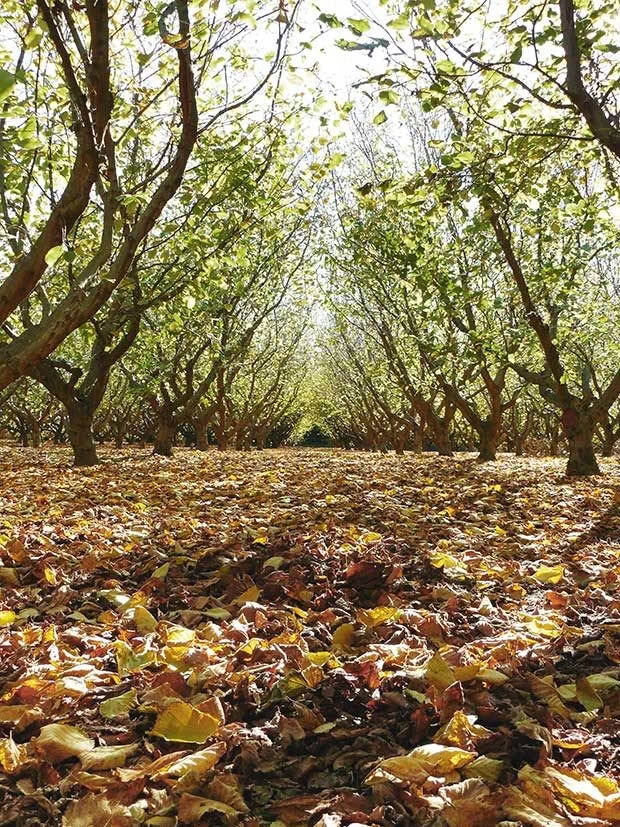
The Horwell’s are surrounded by nuts — the fresher, the better.
Words and images: Kristina Jensen
Who: Jenny & Malcolm Horwell
What: Uncle Joe’s Nuts
Where: Blenheim
Land: 2ha (5 acres)
This story was originally published in NZ Lifestyle Block in 2018.
Freshness is very important with nuts and that can cause problems for Jenny and Malcolm Horwell when they take their freshly harvested nuts to food shows.
“At tastings, we often get people declining a sample of a fresh nut because they have only eaten older, rancid ones!” says Jenny. “But as soon as they taste one of ours, their perspective changes.”
The Horwells own a hazelnut grove near Blenheim, and market their 100% New Zealand-grown-and-processed nut and seed products under the Uncle Joe’s label.
They are passionate supporters of the nut industry and want to help it become a valued and recognised asset in the NZ agriculture sector.
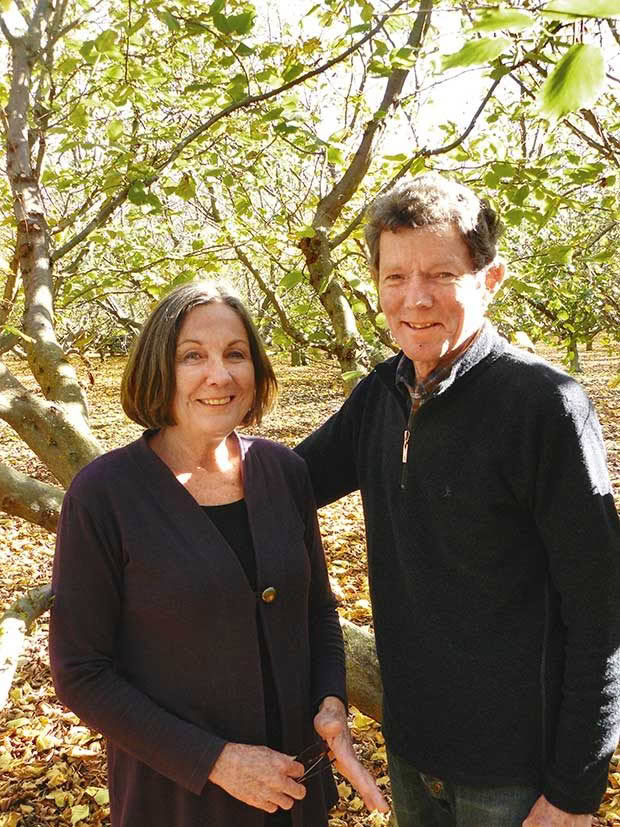
Educating people about the joys of fresh nuts is one of their goals.
Some nuts have a high content of polyunsaturated fats in them, which break down very quickly once exposed to air and light, which is why imported nuts are often rancid. Fresh is definitely far more delicious says Jenny, and a much healthier choice.
“People are also becoming a lot more discerning about food here in New Zealand. They want to know where it comes from and why it’s good for them and the focus is moving away from quantity to quality.”
The couple moved home to New Zealand from Kenya in the late 1980s with their three young children. When they bought their block, north of Blenheim, it was bare paddocks with an old villa and two 100-year-old walnut trees standing guard.
The children used to collect the nuts in the early days and sell them back to the original owner of the company they now run, who named the business after his real-life Uncle Joe.
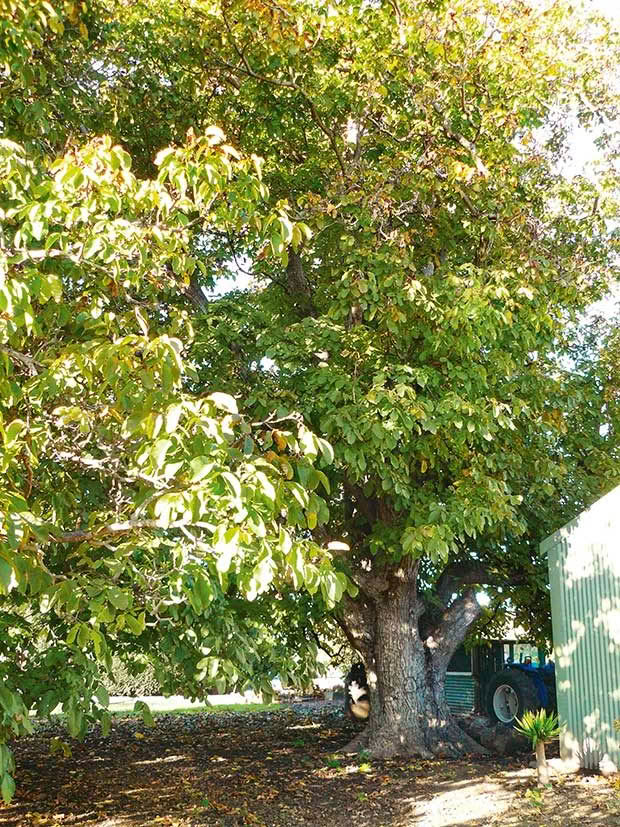
One of the 100-year-old walnut trees on the Horwell’s block.
“Walnut trees were already part of the attractive and rich landscape of a very diverse agricultural picture when we arrived in the early 1990s,” says Jenny. “We had never seen walnut trees in such abundance and such giant trees.
We had a walnut tree in the back garden in our first home we owned in Taupo, but it never yielded well and the tree struggled but was still a favourite.”
However, they chose to grow another nut. “We opted for hazelnut trees which suit a small block such as ours, whereas walnut trees require greater spacing and besides, we were happy in the knowledge that there were walnut trees already well established in this province.”
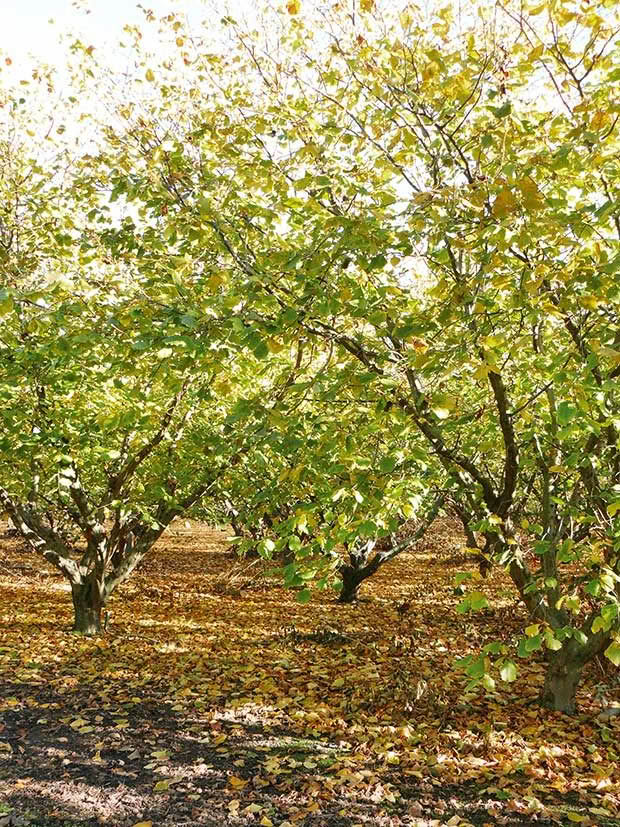
Their hazelnut grove includes the Ennis and Barcelona varieties.
Their 16-year-old trees are the Ennis and Barcelona varieties which are biennial, cropping more heavily every second year. Ennis was a recommendation from local nut enthusiast and farmer Bernard Vavasour.
Bernard used to own a magnificent 16ha (40 acre) block of walnuts in the Awatere Valley and had been working with Oregon University experimenting with Ennis hazelnuts in the Marlborough environment for some years.
Ennis is a large table nut, easy to harvest, and it has excellent flavour, plus it loves the free-draining, silty loam soil around Blenheim. Bernard’s advice has turned out to be an all-round winner for Jenny and Malcolm.
Twenty years ago they bought Uncle Joe’s and focused on finding niche markets for their products. Their passionate commitment to the nut industry saw their business grow quickly.
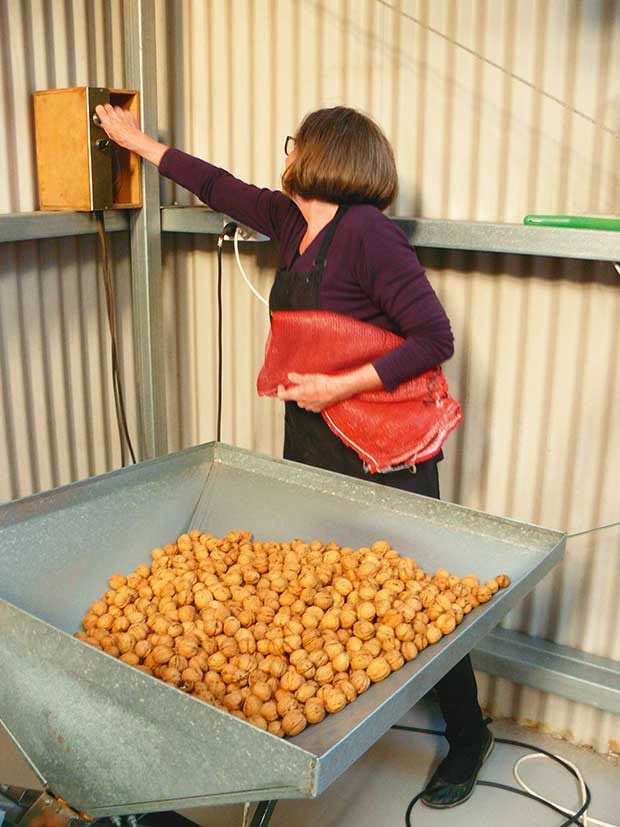
Walnuts are loaded into a shute.
The nut year begins for Jenny and Malcolm and their team when they begin hand-harvesting 10-12kg of hazelnuts from each of their 450 trees in March. Walnuts are gathered from a wide selection of local trees in April.
“There is no point in trying to compete with international growers,” Jenny says. “We focus instead on being a 100 per cent New Zealand, family-owned company processing locally-grown nuts that have been harvested and processed within a 12-month period.
“In addition, our products have no additives as their own natural flavour is premium. The nuts are freshly cracked and the oils cold pressed on our own certified premises which allows us to have a very high standard of quality control.”
Five people are employed at Uncle Joe’s throughout the year to help with harvesting, processing and packaging. The trees are spray-free, although weeds around the trees are controlled with spray.
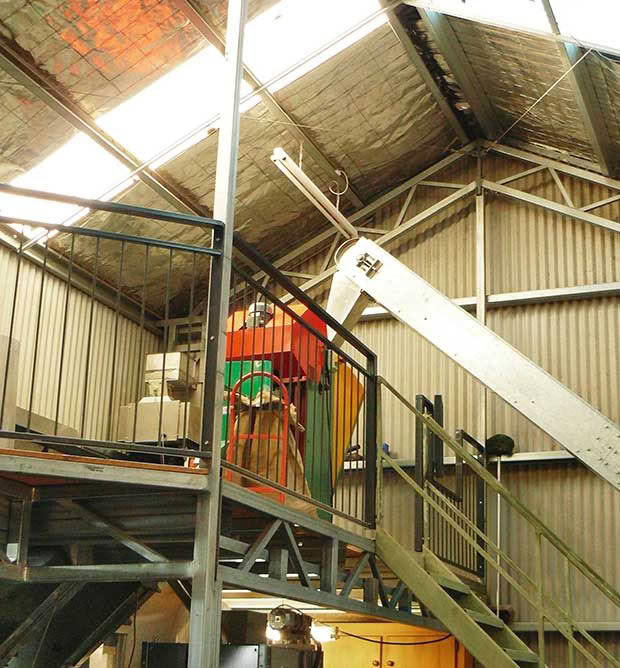
Walnuts are shuttled into the walnut cracker.
“There’s no need for a big load of fertiliser here, judging by soil tests.” says Malcolm. “Marlborough is ideal for growing nuts and as long as the trees are pruned well to keep the light flowing in, they will produce year after year.”
Uncle Joe’s bring in a further 25 tonnes of hazelnuts and 35-40 tonnes of walnuts each year, mainly from South Island suppliers. It is all processed into fresh kernels, oils, nut spreads and nut flours.
There is a predominance of walnut and hazelnut orchards in Canterbury, but it is the walnut giant gems of Marlborough that have supplied Uncle Joe’s business throughout the years.
These trees have a special significance for Jenny and Malcolm. They endeavour to support local tree owners who don’t have the equipment, but who adopt hand- harvesting and have plenty of perseverance.
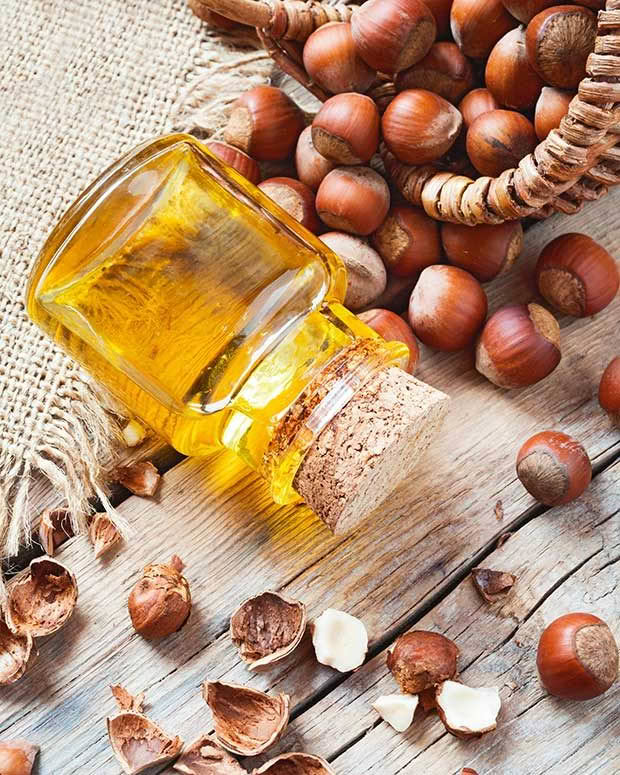
Some have just one or two trees in their backyard. Many of these are lovely older trees that were planted by settlers and are varieties that have great flavour, ranging from sweet and creamy, to others that are darker and more ‘nutty’.
The Horwell’s use a V-shaped cracker for walnuts and a roller cracker for hazelnuts, importing customised equipment from Turkey and France to carefully process the harvest.
Other items have been manufactured by Malcolm and a family relative who specialises in macadamia processing. Having good cracking equipment is a crucial part of the business as it is important to keep the nuts from getting scuffed, and to keep nuts as whole as possible.
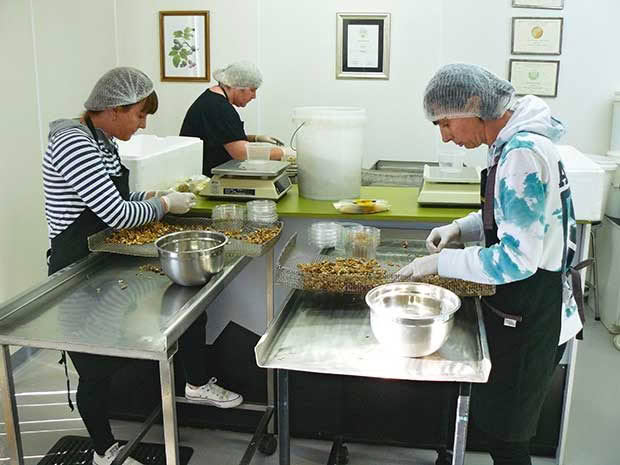
Sorting and grading the walnuts.
The process with walnuts is a mastery of technology. First, the nuts travel up a shute into the cracker, which looks a little like a mulcher and is about as noisy. Inside, a jet of air (known as an air leg) blows the lighter shell upward, leaving the heavier nuts to fall down and be transported to the next, larger air leg, which then blows any remaining shell fragments upward.
The nuts are then conveyed through to a team of nimble-fingered workers who sort and grade them according to colour, quality and size (whole, halves or pieces). The shells don’t go to waste – they are used by local gardeners for mulch on gardens.
It was Jenny’s curiosity that originally led her to experiment with cold pressing as she loves using natural oils, and they make up a significant portion of the Uncle Joe’s range.
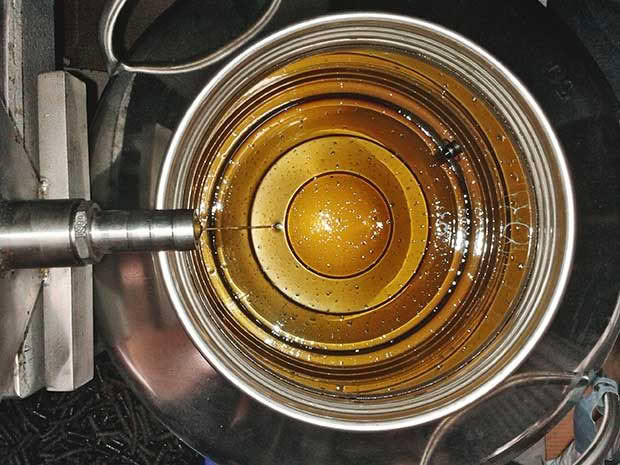
Oil at the end of the cold pressing process.
Their hazelnut, walnut, coriander seed, flax seed, mustard seed, grapeseed, pumpkin seed and hemp seed oils now attract attention locally and internationally.
The Horwell’s started making nut oils in 2005. For the last five years they have been in partnership with local seed grower and buyer Garth Neal, who keeps his press at Uncle Joe’s.
Garth has grown almost every seed type in Marlborough soil and says he has a life-long fascination with seeds and the ‘goodies’ they contain.
“When plants are growing they are establishing all those good things like antioxidants and omega oils in their leaves,” he says.
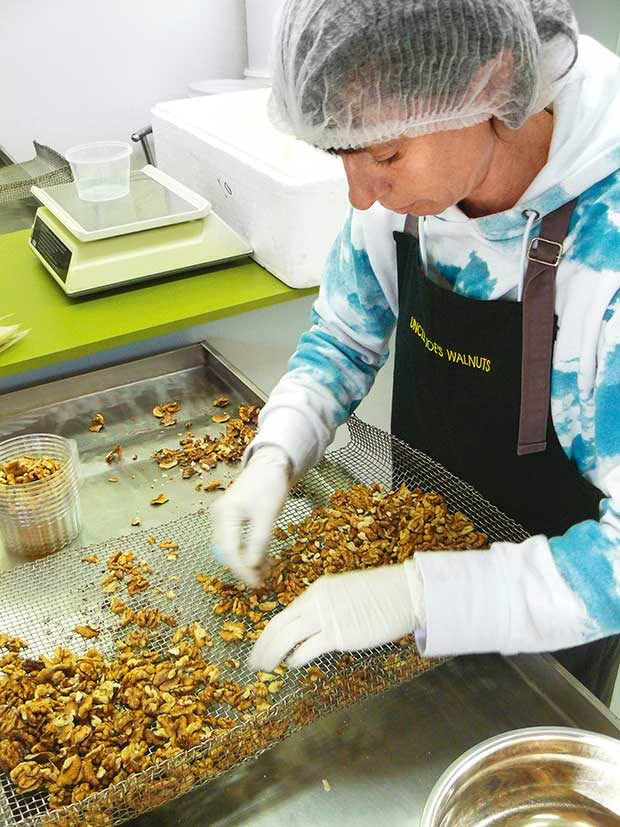
Whole nuts are removed for sale.
“Then they flower and begin to produce seed, and all that intense goodness gets pushed into the seed and we can press it out as oil.”
The arrangement has been a win-win for both businesses. Garth has the oil pressing knowledge, the contacts for buying in the seed, he provides the oil press, and also dries nuts for them.
The Horwells have the food safety certification for their premises, and the marketing set-up for the products.
They adhere to a strict MPI Food Safety Programme that is specifically tailored to the needs of their business, with their nut and seed products regularly tested to ensure they are within quality standards. A traceable history, from the source of the season’s nuts to the end-products, is all carefully recorded.
There is very little waste at Uncle Joe’s. Fibrous ‘pellets’ left over from the cold pressing process are turned into delicious flours, including pumpkin, flax seed, walnut, hazelnut and grapeseed.
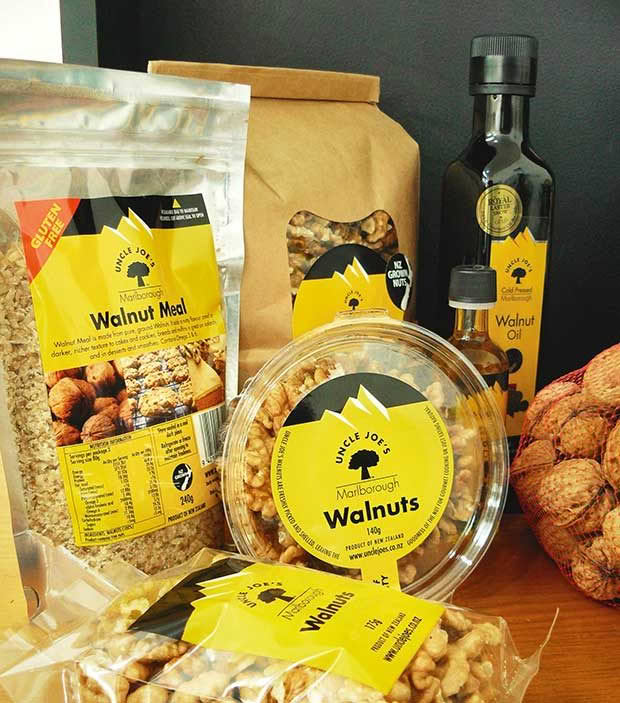
Jenny and Malcolm have developed a range of products including fresh nuts, flours, and now spreads.
There is still plenty of nourishment in these gluten-free by-products because cold pressing extracts only a portion of the goodness, leaving valuable nutrients, minerals and fibre for use in baking, smoothies, and other products.
Gluten-free nut flours in the Uncle Joe’s range are rising stars, winning favour with chefs, speciality bakers and Asian markets. That’s because of the high quality of Jenny and Malcolm’s nuts and their fresh, strong flavours.
The Horwells have also had good feedback about their oils, winning awards over the past 10 years.
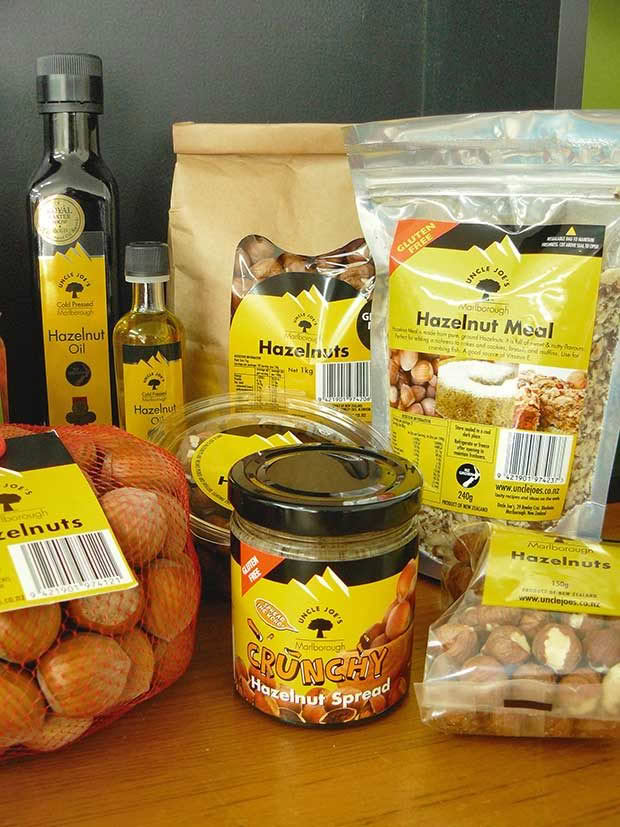
In 2014, the walnut, hazelnut, pumpkin and mustard oils were entered in the AVPA International Gourmet Oil Competition in Paris, solely to see what the response was from the judges.
To Jenny, Malcolm and Garth’s surprise and delight, their walnut oil won one of two silver medals and came in ahead of all the French walnut oils. The mustard seed oil and the hazelnut oil also received awards.
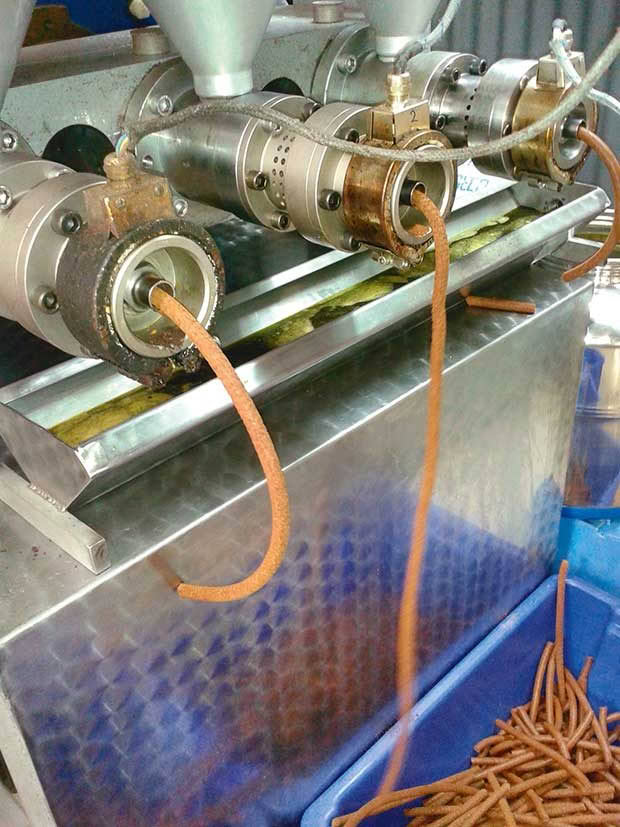
Grapeseed pellets coming out of the oil press.
“Many traditional nut regions roast nuts before pressing the oils to increase the oil quantity,” says Jenny. “At Uncle Joe’s, we cold press fresh nuts. This produces less oil but we think the oil has better flavour, texture and also retains all the goodness of the nuts or seeds it is pressed from.
“When I went to Paris, the French Minister of Agriculture mentioned to me that France is promoting small businesses like ours that produce high quality, locally-produced goods. It was positive encouragement for us personally and a real buzz seeing New Zealand products getting such high recognition.”
4 TIPS FOR GROWING HAZELNUTS
• Hazelnuts like free draining, loamy soil and little or no wind. They like being open, with light flowing through the branches – this means better pollination overall and ultimately more nuts.
• If you are interested in planting an orchard of hazelnuts, the Horwells recommend you look at some existing orchards before deciding on varieties and overall capacity.
• Hazelnut trees are monoecious, carrying both male stigma or catkins, and female flowers, but they still need to be pollinated by a different variety like Merville de Bollwiller or Alexandr or other pollinators.
• Ennis hazelnuts often produce exponentially until they are 3-7 years old, then you can get an average of 10-12kg from one tree every year. Jenny says it’s good to be prepared and plan how you are going to handle these quantities before you plant the trees.
TIPS FOR DRYING AND STORING WALNUTS AND HAZELNUTS
• Get the nuts off the ground as quickly as possible, which stops moisture spoiling the nuts, and also gets them out of the clutches of vermin.
• Wash the shells if they are dirty, then dry the outside shell as quickly as possible. This requires an afternoon or two in full sun, rotating the nuts every so often.
• Keep the nuts in an area where air can flow around them for 6-8 weeks.
• Don’t store nuts in sacks with ground rubbish or bad nuts as these will cause good nuts to deteriorate.
• Use onion sacks for storage to promote air flow through the bags, hanging half-full sacks. Move the nuts around each time you pass them.
• Don’t store nuts under tarpaulins as this will cause them to sweat.
• Nuts can be kept in the freezer to protect the good fats they contain.
READ MORE
Kath Irvine’s pruning fundamentals: When to prune and the three golden rules of pruning
Love this story? Subscribe now!
 This article first appeared in NZ Lifestyle Block Magazine.
This article first appeared in NZ Lifestyle Block Magazine.
